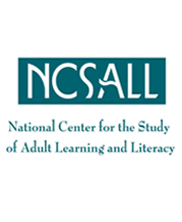As the 21st century begins, the citizens of the United States find themselves living and working in a new economy—one built on a foundation of information and communications technology. This new economy provides advantages to people who possess both educational credentials and strong basic skills. Those basic skills include reading, writing, math, the ability to speak English, and a range of additional skills, such as the ability to think critically, to work in collaborative problem-solving groups, and to use computers and other technology tools. In this new economy, a high school diploma, by itself, less often leads to a career with a good future (Sum, Fogg, & Mangum, 2001). At least two years of postsecondary education or its equivalent in vocational training is becoming the minimum qualification for jobs that pay a living wage, provide basic benefits, and offer a chance for advancement. Adults who possess sufficient skills and education are prepared to take advantage of the opportunities offered by the new economy.
The tasks involved in managing individual and family lives have also become more demanding. Dealing effectively with insurance policies, securing and handling health information and benefits, managing credit, and planning for retirement require well-developed reading, writing, and math skills and a basic foundation of knowledge about these matters. In addition, schools are setting the bar higher for children. Although improvements in schools will help them meet these new demands, children will also need the support of educated parents.
The rights and responsibilities of citizenship in communities, states, and the nation are now more demanding as well. Every citizen should understand the basic principles that underlie threats to the environment, trends in our global economy, and possible effects of changes in tax, welfare, education, and other social policies. As communities become part of an interdependent world, every citizen needs to be prepared to play a role in participating in local political and civic arenas and in maintaining and improving the quality of life in our country.
The changes taking place over the next century will require all adults to continue learning throughout their lives. They will be learning on the job, at home, and in both traditional formal settings and new informal ways, some of which have yet to be invented.
As these changes offer immense new possibilities, the playing field is much bigger and more complex than before. It is, however, a level playing field only for those who have a good education and the strong basic skills people need to succeed in their adult roles as workers, family members, and citizens in the new economy. People who do not possess high levels of these skills will find it difficult to keep up with the new demand for continuous lifelong learning. If all adults in the United States are to have an opportunity to reach their full potential, access to an education that provides a strong foundation for further learning must be available not only to children but to adults as well.


